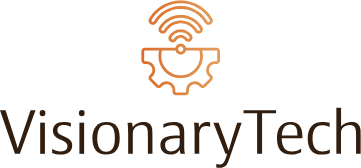In the ever-evolving world of technology and space exploration, two of the most prominent figures, Jeff Bezos and Elon Musk, are once again locking horns. This time, the battlefield is the UK satellite broadband market, a sector that promises to revolutionize internet access across the country. Let’s delve into the details of this high-stakes competition and explore the strategies, implications, and future prospects of this tech titans’ battle.
The Rise of Satellite Broadband
Before diving into the specifics of the Bezos-Musk rivalry, it’s essential to understand the significance of the satellite broadband market. Traditional internet infrastructure, such as fiber-optic cables and cellular towers, has limitations in reaching remote and rural areas. Satellite broadband, on the other hand, offers a viable solution to bridge this digital divide. By deploying a constellation of low-Earth orbit (LEO) satellites, companies can provide high-speed internet access to almost any location on the planet.
Project Kuiper: Jeff Bezos’s Vision
Jeff Bezos, the founder of Amazon and Blue Origin, has been working on his satellite internet project, Project Kuiper, for several years. The initiative aims to deploy a constellation of 3,236 satellites to provide broadband internet services to unserved and underserved communities globally. In the UK, Project Kuiper has been making significant strides, with regulatory approvals and partnerships solidifying its position in the market.
- Regulatory Approvals: Project Kuiper has received the necessary regulatory approvals from the UK government, paving the way for its commercial launch in the coming years.
- Partnerships: Bezos has formed strategic alliances with local telecom providers and technology firms to ensure a seamless integration of Project Kuiper’s services into the UK’s existing infrastructure.
- Investment: Amazon has poured billions of dollars into Project Kuiper, reflecting its commitment to making satellite broadband a reality. The company plans to launch its first batch of satellites by 2023, with full deployment expected by 2029.
Starlink: Elon Musk’s Ambition
Elon Musk, the CEO of SpaceX and Tesla, is no stranger to ambitious projects. Starlink, his satellite internet service, aims to provide global broadband coverage through a network of 12,000 satellites, with the potential to expand to 42,000 in the future. Starlink has already made significant inroads in the UK, with thousands of users benefiting from its services.
- Early Adoption: Starlink has been operational in the UK since 2021, offering beta services to early adopters. The feedback has been largely positive, with users reporting high-speed internet and low latency.
- Scalability: SpaceX’s ability to rapidly deploy and upgrade its satellite constellation gives it a competitive edge. The company continues to launch new satellites regularly, ensuring consistent improvements in service quality.
- Innovations: Musk has been at the forefront of technological advancements, integrating machine learning and advanced algorithms to optimize satellite performance and user experience. Starlink’s user terminals, known as ‘Dishy McFlatface,’ are designed to be user-friendly and cost-effective.
The UK Market: A Strategic Battlefield
The UK is a strategic market for both Bezos and Musk, given its advanced technological infrastructure and high demand for reliable broadband services. The competition between Project Kuiper and Starlink is not just about market share; it’s about setting the standard for satellite broadband globally.
Key Factors Influencing the Market
Several factors are shaping the UK satellite broadband market, including:
- Government Support: The UK government has been proactive in supporting the development of satellite broadband, recognizing its potential to bridge the digital divide and boost economic growth. Initiatives such as the £5 billion Project Gigabit aim to improve internet connectivity across the country.
- Consumer Demand: There is a growing demand for high-speed, reliable internet services, especially in rural and remote areas. The pandemic has further highlighted the importance of robust broadband infrastructure for remote work, education, and healthcare.
- Technological Advancements: The rapid pace of technological innovation is driving the evolution of satellite broadband. Both Project Kuiper and Starlink are leveraging cutting-edge technologies to enhance service quality and user experience.
Comparing Project Kuiper and Starlink
While both Project Kuiper and Starlink share the common goal of providing satellite broadband, they differ in several key aspects:
| Aspect | Project Kuiper | Starlink |
|---|---|---|
| Number of Satellites | 3,236 | 12,000 (with potential for 42,000) |
| Deployment Timeline | First batch by 2023, full deployment by 2029 | Operational since 2021, ongoing deployment |
| Service Availability | Regulatory approvals secured, partnerships in place | Already providing beta services to thousands of users |
| Technological Advancements | Focus on scalability, reliability, and cost-effectiveness | Integration of machine learning and advanced algorithms |
| User Experience | User-friendly terminals, seamless integration with existing infrastructure | High-speed, low-latency internet, user-friendly Dishy McFlatface |
The Future of Satellite Broadband
The competition between Jeff Bezos and Elon Musk in the UK satellite broadband market is just the beginning. As the technology matures and more players enter the market, the landscape is likely to become even more dynamic. Here are some key trends and predictions:
- Increased Collaboration: We may see more partnerships between satellite broadband providers and traditional telecom companies to enhance service coverage and reliability.
- Regulatory Frameworks: Governments around the world will need to develop robust regulatory frameworks to manage the deployment and operation of satellite broadband networks.
- Global Expansion: Both Project Kuiper and Starlink are expected to expand their services beyond the UK, targeting markets in Asia, Africa, and South America.
- Technological Innovations: Continuous advancements in satellite technology will drive down costs and improve service quality, making satellite broadband accessible to a broader audience.
Conclusion
The battle between Jeff Bezos and Elon Musk in the UK satellite broadband market is a testament to the immense potential of this technology. While Project Kuiper and Starlink have distinct strengths and strategies, their competition is pushing the boundaries of what is possible in the realm of satellite internet. As the market evolves, consumers can look forward to faster, more reliable, and more accessible broadband services, transforming the way we connect and communicate.
Ultimately, the winner of this tech titans’ battle will not be just one company, but the millions of people who will benefit from the advancements in satellite broadband. The future is bright, and the UK is at the forefront of this exciting technological revolution.

